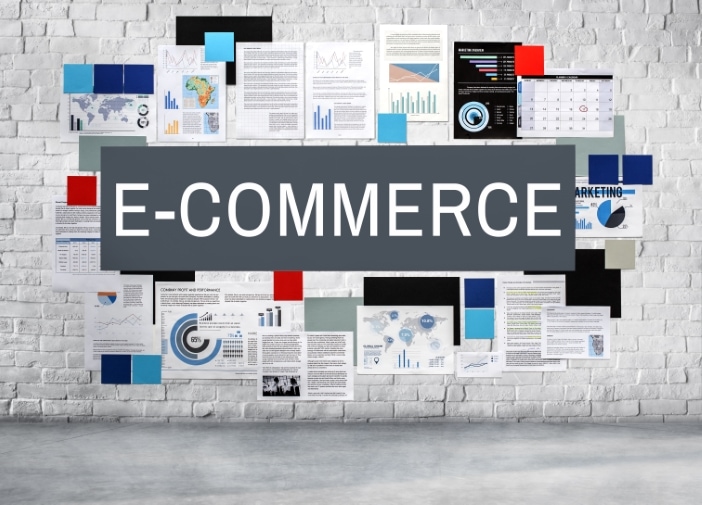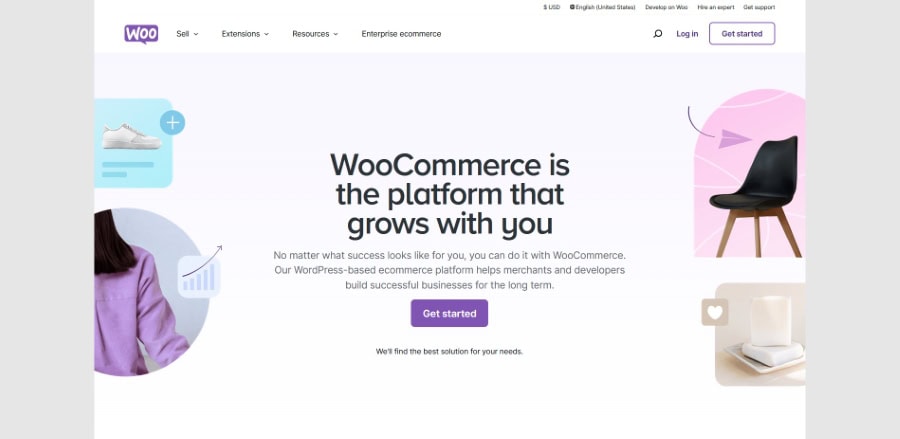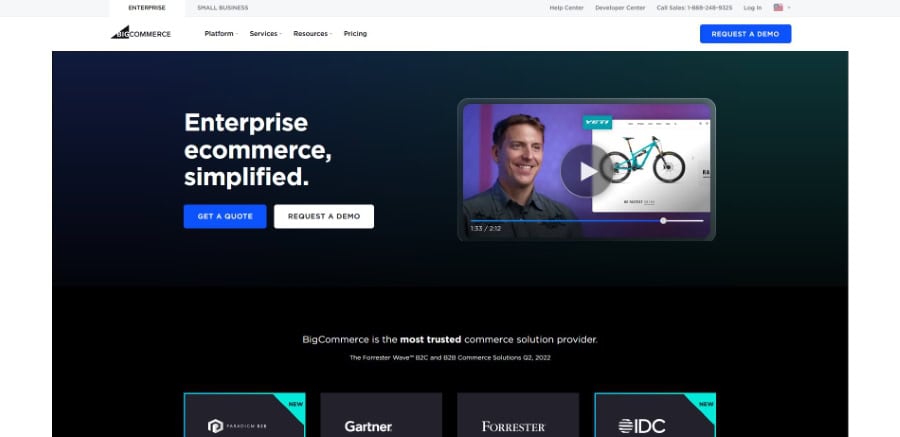Best Ecommerce Platform for SEO: Our Top Picks and Insights

On this page:
- Why SEO Matters for Ecommerce
- What Makes an Ecommerce Platform SEO-Friendly
- Comparing SEO Performance of Platforms
- Top SEO-Friendly Ecommerce Platforms
- Strategies to Boost Ecommerce SEO
- Essential SEO Elements for Platforms
- Factors Influencing Ecommerce Platform Choice
- Key Points to Consider
- Frequently Asked Questions
Why SEO Matters for Ecommerce
SEO is very important to your ecommerce success. More importantly, it does so in a way that really drives organic traffic to your site.
Organic traffic — the kind that comes from search results you don’t pay for — is gold when you want to attract new customers. It enables us to save money that we would otherwise spend on expensive paid advertising.
Through ongoing SEO best practices and frequent content refreshes, you’ll be able to see slow, steady, and sustainable long-term growth.
Secondly, by concentrating your efforts on specific targeted keywords, you attract visitors who are truly looking for what you have to offer.
At least 43% of all e-commerce traffic comes from Google’s organic search.
Rebootonline
Traffic from Organic Searches
With a clear understanding of the power of organic search traffic, it becomes clear how it can help reduce our reliance on paid ads.
When we get our content in sync with the search intent, we unlock that long-term growth potential.
Cost-effective targeted keywords bring in the right people — the visitors most likely to be interested in what you have to offer. Tactics like improving product copy and implementing long-tail keywords are key.
These actions go beyond visibility, however, to create deeper engagement with your brand and mission.
- Optimize product descriptions
- Use relevant keywords and phrases
- Update content consistently
- Focus on long-tail keyword integration
Impact of SEO on Sales
When it comes to eCommerce sales, higher search engine rankings are proven to dramatically improve your overall sales performance.
When your products rank organically in the SERPs, you’re given the benefit of exposure and credibility.
Fluid aesthetics and easy-to-use navigation make all the difference between a visitor and a customer. Incredible SEO raises average order value (AOV) and boosts lifetime customer value.
To measure your success, follow important metrics such as conversion rates and revenue growth.
- Monitor conversion rates
- Analyze revenue growth
- Focus on user experience
- Enhance site navigation
RELATED: eCommerce Analytics: Using Data to Grow your Business
Importance of Online Reviews
Positive online reviews improve our site’s authority and trustworthiness. They do more than affect click-through rates; they add new content.
Reviews will be of paramount importance to your SEO strategy, as they allow for the natural inclusion of new keywords.
Managing reviews effectively involves encouraging genuine feedback and addressing concerns promptly.
- Encourage genuine feedback
- Respond to reviews quickly
- Highlight positive experiences
- Incorporate review content in SEO strategies
Role of Backlinks in SEO
Backlinks are still a major piece of the puzzle for increasing your site’s overall authority and search rankings.
Natural, high-quality backlinks from authoritative sources increase our credibility and boost your rankings in search results.
Additionally, you can use internal linking as a way to improve overall site structure and user navigation.
Whitehat backlink-building strategies include guest blogging and partnerships with influencers.
- Pursue guest blogging opportunities
- Forge partnerships with influencers
- Implement internal linking strategies
- Seek backlinks from reputable sources
What Makes an Ecommerce Platform SEO-Friendly
Key Features for SEO Success
When you’re comparing ecommerce platforms, take a look at the features designed to support SEO efforts.
Their customizable meta tags are hugely important for other sites as an easy tool to optimize product pages and categories. They help you manage how your content shows up in search results.
Structured data support further increases visibility by allowing for rich snippets, which can help products stand out even more in search listings.
Proprietary analytics tools, like Google Analytics, provide crucial and invaluable insights into SEO performance. They give you the strength to drive better decisions through rigorous data analysis.
A must-have SEO feature list for an ideal ecommerce platform includes:
- Customizable titles and descriptions
- Structured data support
- Built-in blogging capabilities
- Integration with SEO plugins like Yoast SEO
- Mobile-friendliness
- Deep navigation hierarchy
- Customizable URL structures
- Support for various payment methods
Mobile Optimization and Site Speed
With over half of all shoppers now using a mobile device, mobile optimization should be a priority.
Those platforms that make sure their websites are fast loading will keep their users happy, reduce bounce rates, and immediately impact their search engine rankings.
Responsive design responds naturally and automatically to whatever device the user has.
This flexibility also maximizes your SEO efforts, ensuring that your site is accessible and engaging on every screen.
For optimizing mobile performance, consider:
- Image compression
- Code minimization
- Fast loading times
- Responsive design
A 1 second delay in page load time can cause conversion rates to drop by 7%.
Akamai
URL Structure and Meta Tags
Search engine indexing is built on clean, descriptive URLs, making them an important factor for visibility and user experience alike.
Properly designed meta tags increase organic click-through rates, helping prospects know exactly what you’re offering when they land on your page from search results.
Best practices call for clean, short, relevant URLs and compelling meta descriptions that encourage searchers and align with the content on the page.
Common mistakes to avoid:
- Overly complex URLs
- Repetitive meta tags
- Irrelevant descriptions
Importance of SSL for SEO
SSL certificates are especially important for ecommerce platforms. They increase user trust and search engine trust.
Secure connections enhance user confidence and positively impact rankings.
For any sites that deal with sensitive data, SSL is not optional.
Steps to effectively implement SSL:
- Obtain a valid SSL certificate
- Install across all site pages
- Regularly update the certificate
Platform |
Custom Meta Tags |
SEO Plugin Integration |
Mobile Optimization |
SSL Support |
|---|---|---|---|---|
|
Shopify |
Yes |
Yes |
Yes |
Yes |
|
WooCommerce |
Yes |
Yes |
Yes |
Yes |
|
BigCommerce |
Yes |
Yes |
Yes |
Yes |
|
Magento |
Yes |
Yes |
Yes |
Yes |
RELATED: Understanding the benefits of an SSL Certificate for your Business Website
Comparing SEO Performance of Platforms
User Experiences and Statistics
BigCommerce’s flexibility and ease of use, without the need for coding knowledge, makes it a top choice for those who need something that’s easy to use.
In fact, real users can’t stop speaking highly of BigCommerce’s SEO-friendly capabilities. They’re big fans of the automatic 301 redirects and the convenient ability to directly edit the txt file.
Retailers Lose $2.6 Billion Annually Due to Slow Websites
Since 90% of consumers now browse and shop through smartphones, a mobile-responsive website is a must-have. Case studies often reveal that platforms like BigCommerce, which offer digital download support and multiple payment options, have higher traffic and conversion rates.
- User-friendly interface increases engagement
- Built-in SEO features enhance visibility
- Mobile responsiveness is critical for modern shoppers
Long-Tail Keywords and Click-Through Rates
Long-tail keywords are important for bringing in niche markets. Through extensive A/B testing, optimizing for these keywords increases click-through rates and conversions.
Using tools like Google Keyword Planner and SEMrush, you can identify effective long-tail keywords to incorporate into content and product listings. Platforms with robust keyword optimization tools can create striking designs that are as beautiful as they are search engine–friendly.
- Google Keyword Planner
- SEMrush
- AnswerThePublic
Content Relevance and Updates
One of the simplest ways to boost your search engine rankings is to regularly update your content. New content not only attracts new visitors, it brings them back for more.
Look for ways to create compelling, creative content that resonates with your fans. Adding new product descriptions or blog posts on a consistent basis makes our site more active and interesting.
- Product descriptions
- Blog posts
- Customer testimonials
Top SEO-Friendly Ecommerce Platforms
WooCommerce

For those who are already on WordPress, WooCommerce is the clear front-runner.
Its most impressive features are seamless integration with WordPress, thus being extremely flexible and capable of powering ecommerce stores of all shapes and sizes.
This platform also offers very strong SEO capabilities with customizable URLs, metadata, and descriptions, all of which work hand in hand with our SEO objectives.
An ambitious product catalog using WooCommerce can quickly catch up with you and slow down your site to a crawl.
This slowdown can ultimately hurt your search engine optimization efforts.
Our users love that WooCommerce is flexible and that the combination of WooCommerce and plugins like SeedProd makes it easy to create a new site quickly.
Key Benefits of WooCommerce:
- Flexibility with WordPress
- Extensive plugin options
- Strong community support
- Customizable SEO settings
Get WooCommerce
Magento (Adobe Commerce)

Adobe Commerce (formerly Magento) really stands out in the eCommerce scene due to its great SEO functionality. These features are URL rewrite, customizable metadata and automated sitemap generation.
These capabilities, paired with its vast reach, make it an ideal platform for long-term SEO strategies. Magento is a great option if you’re looking for highly powerful tools.
It can be a little overwhelming for novices, requiring a learning curve or expert help. Success stories frequently cite its scalability and strong SEO tools as key advantages for expanding enterprises.
Key Benefits of Magento:
- Advanced SEO capabilities
- Scalable for business growth
- Detailed customization options
- Strong content management features
Get Adobe Commerce (formerly Mageneto)
BigCommerce

BigCommerce is the best at offering SEO ecommerce features which improve usability. It has advanced URL rewriting and rich snippets built in.
These features combined with SEO-friendly templates help you rank higher on search engines and keep users engaged. User feedback also emphasizes the platform’s user-friendly approach to SEO management.
This design allows small and medium businesses to gain a greater competitive advantage with less technical know-how.
Key Benefits of BigCommerce:
- User-friendly SEO management
- Enhanced user engagement
- SEO-friendly templates
- Simplified URL customization
Get BigCommerce
Shopify

Shopify’s SEO features are specifically designed to help ecommerce businesses maximize visibility so customers can easily find your site.
It supports keyword optimization, metadata management, and analytics, giving you everything you need for effective SEO.
User reviews frequently commend Shopify for its intuitive approach and the positive impact on search engine rankings, making it a strong contender for businesses seeking effective SEO solutions.
Key Benefits of Shopify:
- Comprehensive SEO tools
- Intuitive management interface
- Effective keyword optimization
- Strong analytics support
Get Shopify
Strategies to Boost Ecommerce SEO
With the rise of ecommerce, it has never been more important to have strong SEO strategies in place.
These proactive strategies will free you to expand your site’s visibility and reach. A full-service SEO strategy that combines on-page and off-page tactics is essential.
This multi-faceted plan will make sure you’re addressing everything from improving product descriptions to using backlinks to your advantage.
Ongoing maintenance and consideration for change ensure our approach never goes stale, providing ongoing success and search engine rankings for the long run.
- Optimize Product Pages: Write descriptive, keyword-rich product titles, product descriptions, and meta descriptions for any chance at ranking in organic search results.
- Improve Site Speed: A fast-loading site is critical, as even a one-second delay can lead to a 7% decrease in conversions.
- Conduct Keyword Research: Tools such as Google Search Console and Google Keyword Planner are great places to start.
Enhancing On-Page Content
Optimization on-page content is step one of SEO 101. To increase your organic search visibility, you need to optimize product descriptions and category pages.
Keywords need to be included seamlessly, bringing in relevant, targeted traffic without sacrificing the flow of the content.
Rich multimedia features, like interactive maps, images, and video, wrap high-quality storytelling that rewards the user.
Implementing schema markup can also help increase visibility and give search engines context around your content.
Some best practices are important keyword placement, clear formatting, and making sure content is both descriptive and relevant.
RELATED: Enhancing Business Success through Content Engagement
Leveraging Internal Links
Internal linking is one of the most underutilized factors in site structure and navigation. It assists both search engines and users in discerning our content hierarchy. Relevant internal links keep users on your site longer and can decrease your bounce rate.
By internally cross-linking relevant product pages and blog articles, you can ensure that they are guided smoothly between pages.
The longer they stay on the site, the better.
This method improves the user experience, which is the most important thing. It also helps your site’s SEO by creating a neatly organized network of content.
Utilizing Explainer Videos
Explainer videos are an excellent tool to communicate the value of your product benefits and features in an engaging format. They are the best way to boost user engagement and keep people on your site longer.
Videos create another layer of search engine optimization opportunities, creating the potential for massive visibility. Best practices involve producing succinct, educational videos and distributing them on your global ecommerce platform.
By taking these actions you’re not only driving engagement but also solidifying your product’s value prop.
Essential SEO Elements for Platforms
Understanding the most important SEO factors in ecommerce platforms will go a long way toward maximizing your online presence and ecommerce opportunities.
Things like the ability to bulk edit meta titles, descriptions, and URLs are key to winning at SEO.
Platforms like BigCommerce shine here as they come with strong, built-in SEO features. Their features find the best server response times, dramatically improving site speed.
Beyond securing online transactions and proving a website’s identity, SSL certificates play a key role in building customer trust.
They multiply visibility and trust in search engines by orders of magnitude. Mobile-friendliness is crucial as well.
Having built-in tools such as Google Analytics through platforms such as Shopify are key, allowing users to track and develop SEO strategies.
Speed optimization is very important!
It’s estimated that a one-second increase in page load results in a 7% decrease in conversions, making a speedy, mobile responsive website non-negotiable.
Smartphones accounted for almost 70% of all retail website visits worldwide.
Customization vs. Standard Solutions
Determining whether to go with a customizable SEO solution versus a more cookie-cutter approach takes some consideration.
Customizable platforms like Adobe Commerce (Magento) offer full control over SEO adjustments, allowing you to tailor strategies to specific business needs.
This flexibility is incredibly valuable when it comes to SEO, as it allows you to pivot with the tide and adjust to change in an instant.
Default solutions could be tempting because of their ease of use and simplicity, but this can restrict more complex SEO strategies.
No need to worry, you can easily install SEO plugins such as Yoast on WooCommerce.
Additionally, Magento provides access to a wealth of SEO-centric extensions from their developer community.
Here’s a bullet list for choosing between customization and standard solutions:
- Level of control over SEO settings
- Ease of integration with SEO tools
- Scalability for future growth
- Availability of community support and extensions
Evaluating Long-Term Value and Costs
Choosing an SEO-friendly ecommerce platform is an investment that brings incredible value over time.
The higher your search engine rankings, the more traffic and ROI you’ll enjoy.
Keeping a site live and improving and optimizing it for SEO has its own significant costs. Consider the platform’s ability to scale with your business.
Consider the SEO tools, extensions, and other costs associated with the implementation, as well as the savings you will receive from increased site speed and performance.
Here’s a bullet list to evaluate long-term value:
- ROI from enhanced traffic and conversion rates
- Cost of SEO tools and ongoing optimization
- Scalability and adaptability to business changes
- Potential savings from improved efficiency
Platform |
Customization |
Mobile-Friendliness |
Speed Optimization |
Community Support |
|---|---|---|---|---|
|
BigCommerce |
High |
Strong |
Excellent |
Moderate |
|
Shopify |
Moderate |
Strong |
Good |
Extensive |
|
Adobe Commerce |
Very High |
Strong |
Excellent |
Extensive |
|
WooCommerce |
High |
Strong |
Good |
Extensive |
Factors Influencing Ecommerce Platform Choice
Choosing the best ecommerce platform is a decision influenced by the type of business you run.
Let’s explore a few key factors that inform our decision.
User Experience and Design Flexibility
User experience greatly influences customer retention and conversion rates. A clear, intuitive interface lets visitors explore your site without any confusion, creating a better experience and leaving a lasting impression.
The design flexibility is another big draw. That gives you the opportunity to use good SEO practices such as optimizing meta tags and headers which are important to ranking well in searches.
Intuitive navigation and layout are key.
They direct users seamlessly through the buying journey, improving their experience each step of the way.
For a positive user experience, consider design elements such as:
- Responsive layouts that adjust to any device
- Clear and concise call-to-action buttons
- Fast loading times to minimize bounce rates
- Accessible and user-friendly checkout processes
RELATED: The Importance of Website Design for SEO
Integration with Marketing Tools
Creating a complete SEO strategy means integrating additional marketing tools into our platform, and that’s exactly what you should be doing.
This seamless integration also makes it easier for you to track performance metrics and optimize campaigns to achieve superior results.
That combined power of analytics and email marketing tools gives you the ability to predict customer behavior, allowing you to send the right communication at the right time.
Consider these key marketing tools for integration:
- Google Analytics for tracking site performance
- Mailchimp for email marketing campaigns
- SEMrush for SEO analysis and keyword tracking
- Social media management tools like Hootsuite
When choosing an ecommerce platform, many times organizations look at licensing costs and the ability to scale during high traffic times.
Brands also need to check partnership fit with favorite shipping carriers to maintain continuity of delivery, which is the most basic expectation today for any customer.
Fortunately, platforms such as BigCommerce provide Multi-Storefront functionality, which makes it relatively easy to manage.
Understanding our business needs is crucial in creating a successful ecommerce presence, especially with projected retail ecommerce sales surpassing 6 billion dollars in 2024.
Key Points to Consider
Selecting the best ecommerce platform will help you make SEO work for you, bringing more qualified shoppers and sales to your store.
We’ve compared the final finalists that dominate SEO, with each providing their own distinct advantages. The right platform will help you grow with powerful, proactive tools and strategies.
Whether you’re looking for something easy to use, highly customizable, or scalable, there’s a solution that fits your needs.
The goal is to create a seamless, compelling experience that keeps your users coming back.
- SEO is one of the most important aspects of ecommerce success. It fuels organic traffic, increases visibility, and improves brand credibility, which all contribute to increasing conversion rates and sales per month.
- Organic search traffic offers a more cost-effective avenue than paid advertising. When you target the right keywords and optimize your content strategically, it leads to sustainable, long-term growth.
- Good online reviews help increase consumer trust. They’re also an SEO boon, supplying the quality fresh content Google craves and improving your click-through rates from the SERPs.
- Backlinks are important for increasing search rankings and building site authority. Internal linking creates a clear site structure and hierarchy and it also improves user experience.
- An SEO-friendly ecommerce platform should offer customizable meta tags, structured data support, integrated analytics, and mobile optimization to ensure a seamless and effective SEO strategy.
- UX is everything for ecommerce platforms. Integration with marketing tools to establish a comprehensive ecosystem that can best support effective SEO efforts is also key.
Frequently Asked Questions
Why is SEO important for ecommerce?
SEO is a critical practice for your store because it gets your store found organically. Additional traffic increases the chances of making a sale, or so the theory goes.
It boosts your visibility and credibility, arming you with a powerful competitive advantage.
What features make an ecommerce platform SEO-friendly?
Pay attention to customizable URLs, meta tags, and mobile optimization. Fast loading speeds and an up-to-date HTTPS connection are also key.
Combining other features leads to better SERP visibility and UX.
How do SEO performances differ among ecommerce platforms?
Each platform has a different level of SEO functionality. Some have features built in, others need plugins.
Select a platform with strong SEO features to help improve your search ranking.
What strategies can boost ecommerce SEO?
Write keyword-rich content, optimize every product page, and get your site speed up to snuff.
Refreshing content and establishing authoritative backlinks can improve your chances of ranking higher on search engines.
What are essential SEO elements for ecommerce platforms?
Pay attention to keyword optimization, easy to use navigation, and quick load speeds.
Optimize for mobile and make sure your site is structured in an easily crawlable way to help you rank higher.
What factors should influence the choice of an ecommerce platform?
Look for SEO features, user-friendliness, and scalability.
Consider factors like cost, customer support, and integration capabilities to ensure you choose a solution that aligns with your business objectives.

